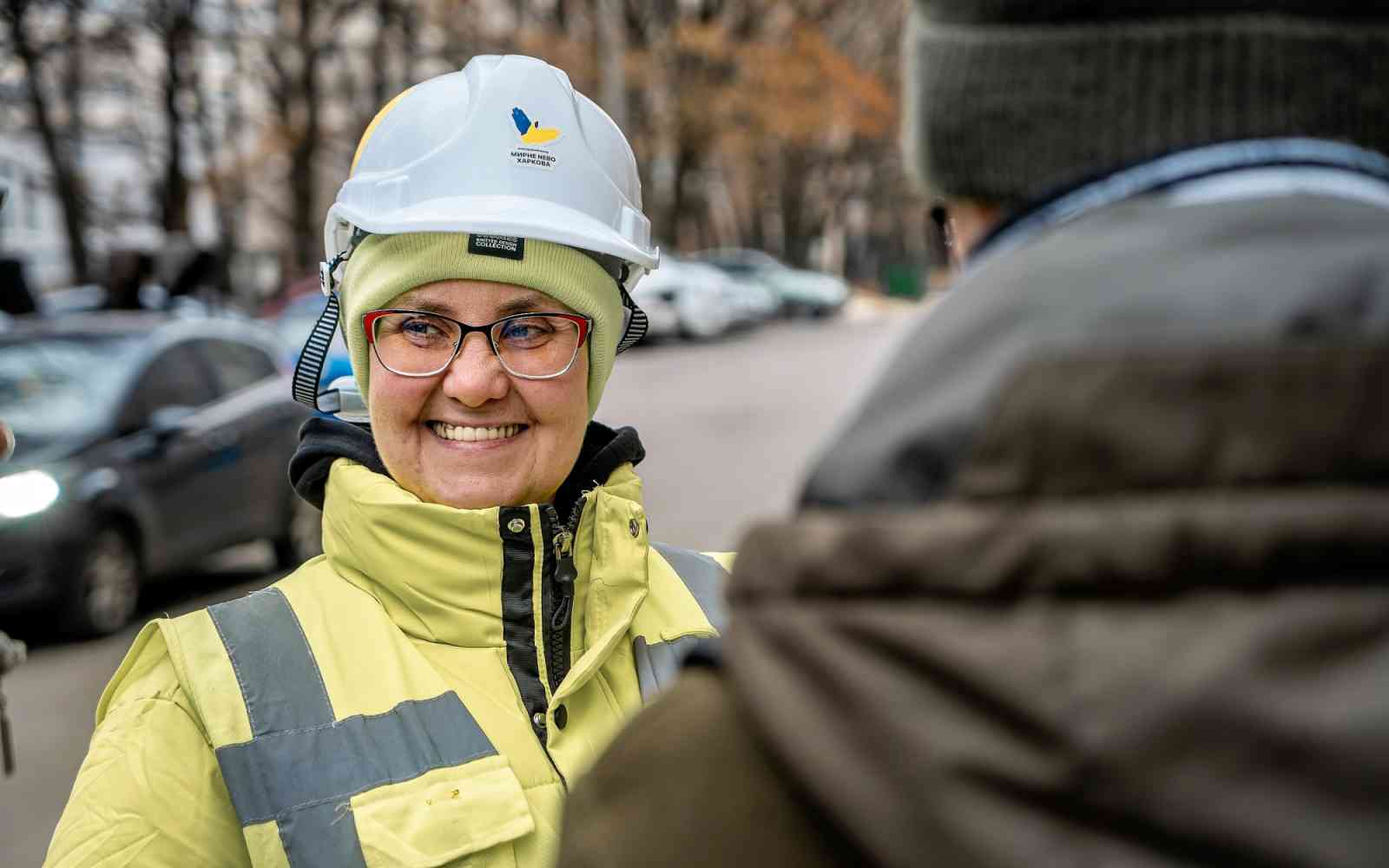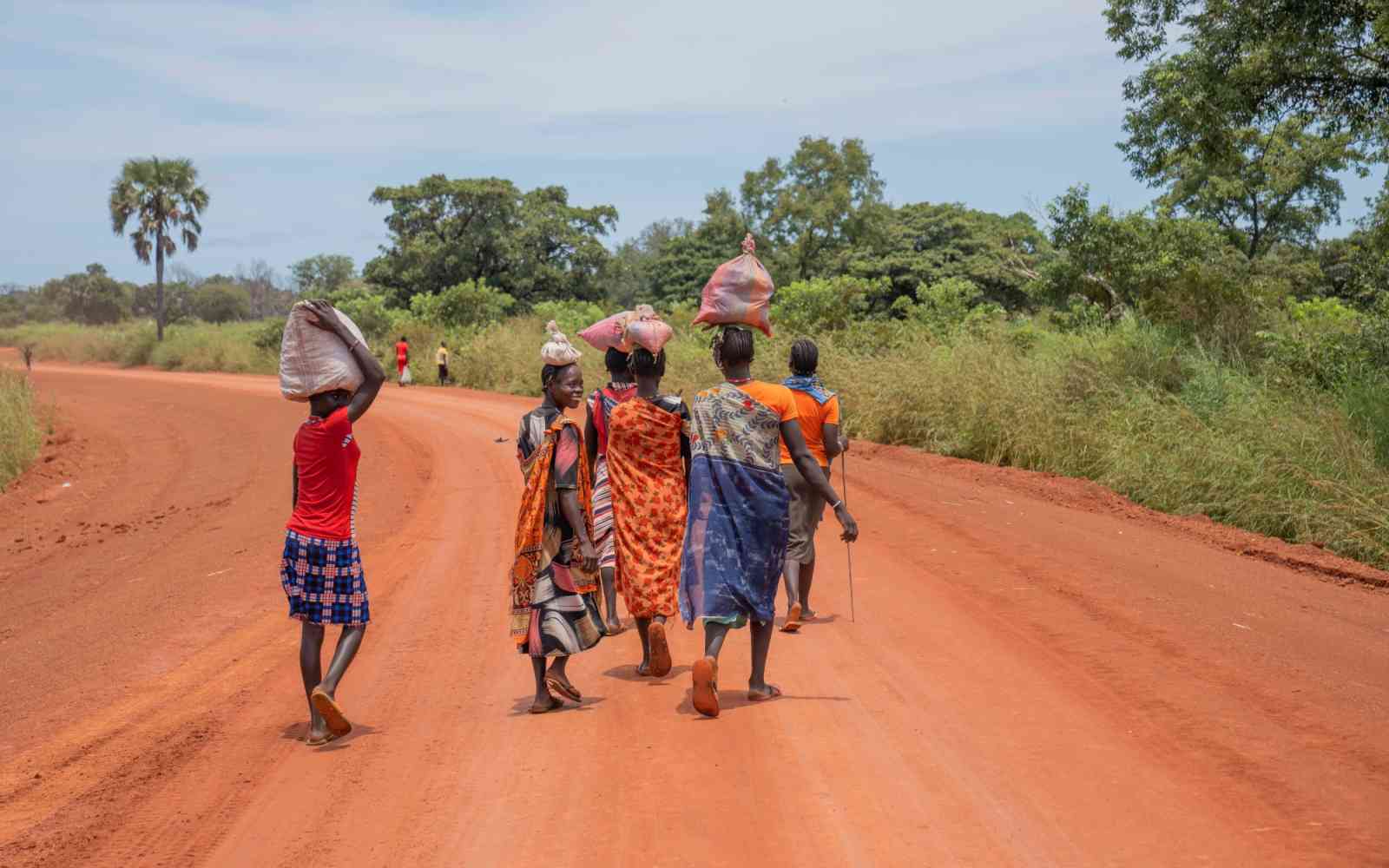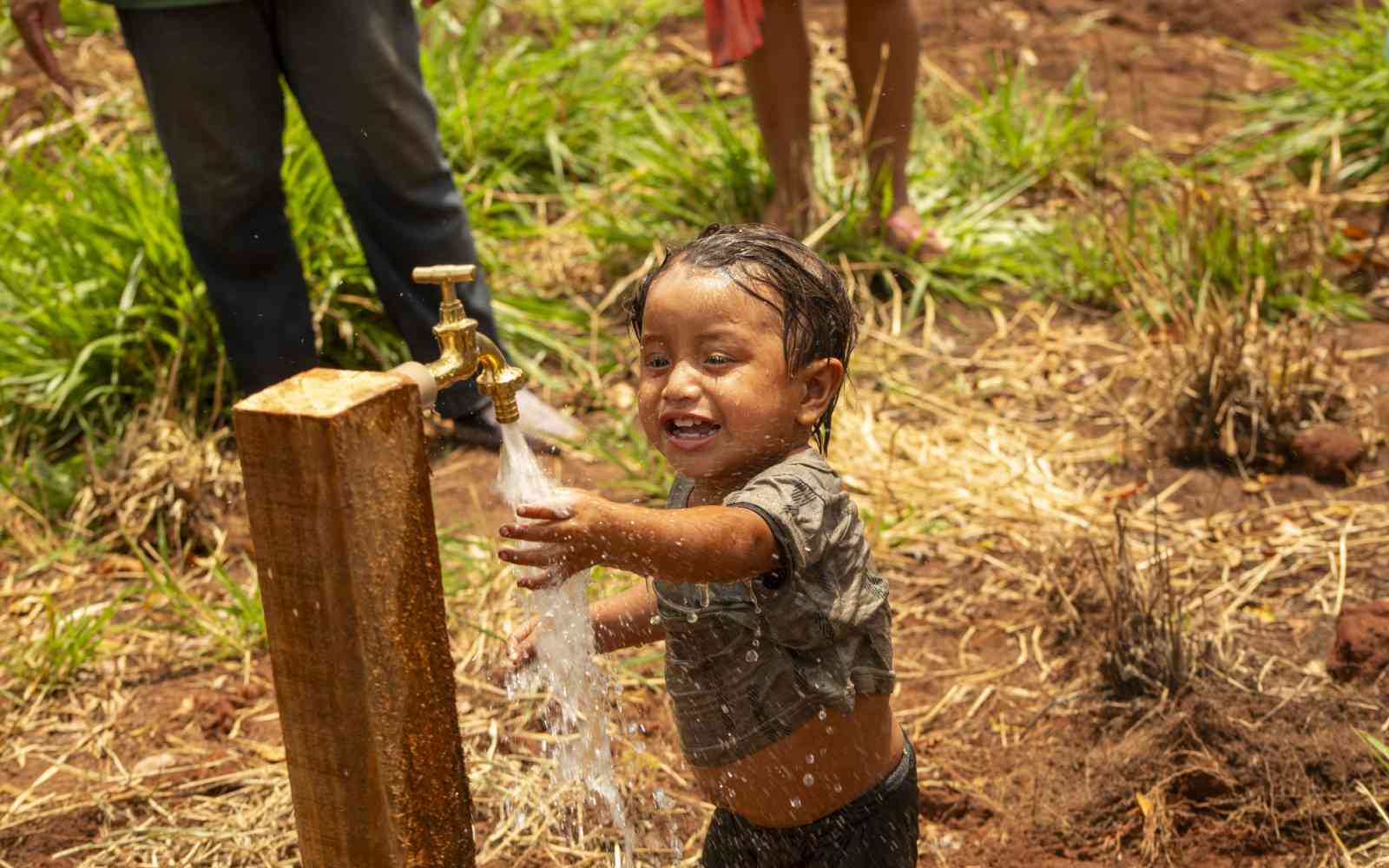The United Nations Office for Project Services (UNOPS)

2024 in review: Responding to needs in crisis and conflict-affected settings
In 2024, UNOPS worked around the world with the UN family and partners to respond to critical needs and support vulnerable communities. Here is a selection of those stories.
Afghanistan
Afghanistan
Amid intensifying needs, the Afghanistan Community Resilience and Livelihoods Project provides short-term employment, offering a lifeline for vulnerable households – with the benefits of the work activities extending to entire communities.
Social grants are also extended to particularly vulnerable households unable to participate in work, prioritizing women-headed households, people with disabilities and those suffering from drug addiction.
Funded by the World Bank and the Afghanistan Resilience Trust Fund, the UNOPS-managed project is working directly with more than 9,000 communities to benefit over 14 million Afghans across 10 cities, 29 provinces and 98 rural districts.
Ethiopia
Ethiopia
Conflict in northern Ethiopia had a devastating impact on millions of people and left communities, including those in Tigray, without access to basic services.
Destroyed water infrastructure has deprived many people of access to clean water. Damaged educational facilities have forced many children out of school. And fragile and deteriorating health services have increased the vulnerability of communities.
As part of the larger World Bank-funded 'Response Recovery Resilience for Conflict-Affected Communities in Ethiopia' project, UNOPS is helping to rehabilitate and improve access to water, sanitation, health, education and other social services on behalf of the government of Ethiopia.


Gaza
Gaza
The ongoing conflict in Gaza has had devastating consequences. Severe damage to infrastructure and restrictions on the movement of people and goods have seriously impaired the delivery of basic humanitarian aid, with 1.9 million people internally displaced.
“In the face of the human tragedy in Gaza, we have a collective and urgent responsibility to act – not only to meet acute humanitarian needs but to prepare now for recovery and reconstruction as soon as conditions allow,” says UNOPS Executive Director Jorge Moreira da Silva.
With the UN and other partners, UNOPS is helping to safeguard critical humanitarian aid efforts and supporting the delivery of life-saving supplies, aiming to ensure basic needs are met.
Read more: Crisis response in Gaza


Haiti
Haiti
Agriculture plays a vital role in Haiti’s economy and in providing livelihoods.
The country's northwest region is known for its fertile lands and underground water resources. But poor infrastructure, recurrent droughts and seismic events, and persistent political and economic instability have hindered development – and led to one of the highest levels of food insecurity in the world.
With $5 million in funding from the World Bank, UNOPS is working with the government to make agricultural systems more resilient to climate-induced shocks and stresses – and increasing communities' access to nutritious food, including in earthquake-affected areas.
Read more: Improving food security in Haiti


Mozambique
Mozambique
Since 2017, northern Mozambique has been plagued by an armed insurgency. The wave of violence has interrupted education, destroyed crops and public infrastructure, impacted livelihoods and forced people to flee their homes.
With funding from the World Bank, the government-led Northern Crisis Recovery Project – implemented by UNOPS – is supporting communities displaced by the conflict.
Working with local implementing partners, project activities are encouraging social cohesion in communities impacted by the conflict, supporting sustainable livelihoods and economic opportunities, and increasing access to public services for internally displaced people and host communities.
Read more: Resilient crisis recovery in Mozambique
Sudan
Sudan
The ongoing conflict in Sudan has made it difficult for people to access critical basic services. Healthcare for millions of people has been limited – and is no longer fully available in parts of the conflict-affected country.
In Kassala State, UNOPS is working with the Italian Agency for Development Cooperation to renovate and expand Kassala Teaching Hospital as well as build new health infrastructure, ensuring the facility continues to meet growing needs.
The project is improving health services for 2.8 million people, including 175,000 internally displaced persons.
Read more: Better diagnostic services and healthcare for people in Sudan


Ukraine
Ukraine
Ukraine's Chernihiv Region – which borders Belarus and Russia – is integral to the country's agricultural sector. Following Russia’s full-scale invasion of Ukraine in 2022, the region has faced daunting challenges due to the presence of explosives.
Vast tracts of agricultural land are now laden with mines and explosive remnants of war – crippling the region's economic activity and posing severe safety risks to communities.
With funding from the government of France, UNOPS is providing training and tools to the National Police of Ukraine in the Chernihiv Region to enhance their capacity to find and safely manage explosives – improving safety in the area.
Read more: Enhancing safety and recovery in Ukraine


Yemen
Yemen
Years of ongoing conflict in Yemen have led to a catastrophic humanitarian crisis. Widespread damage to infrastructure, including the country’s electricity grid, has crippled access to essential services like healthcare, education and clean water.
With funding from the World Bank’s International Development Association, UNOPS is installing solar energy systems in schools, health facilities and water stations across the country.
Using robust systems built to withstand Yemen's harsh terrain, remote locations and extreme weather conditions, the renewable energy solutions are providing a more reliable and affordable source of electricity for millions of people – and improving their access to essential services.
Read more: Beyond the grid: Powering communities across Yemen






























